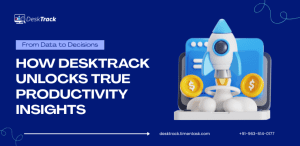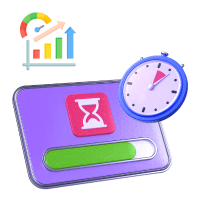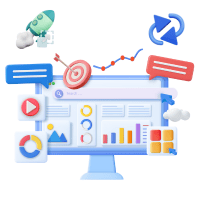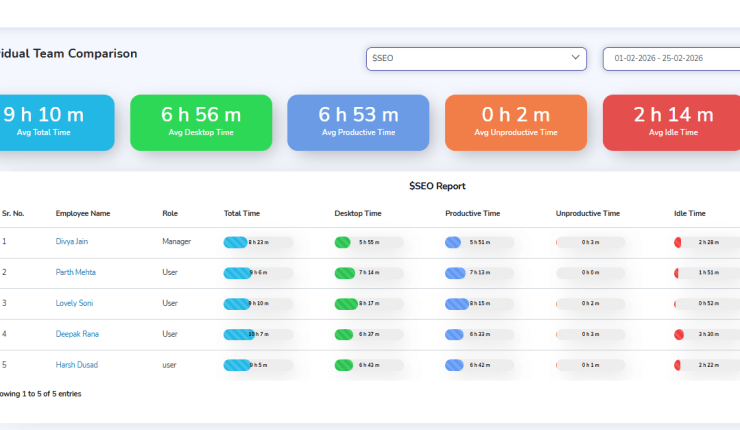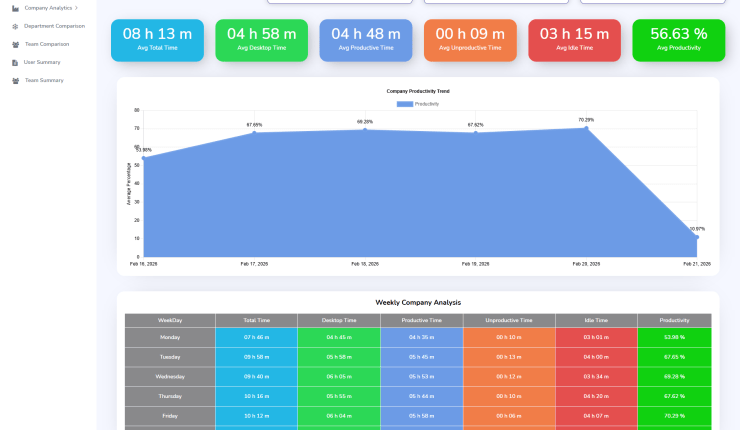For years, and even decades since its inception, this question has always been a topic of debate and controversy. The poll is: Can artificial intelligence replace human intelligence? Some say yes. Experts say no with proof. So, in short, the answer is no. AI can replace a human in only its dreams, if it ever gets any. Jokes aside, it has always been a tendency of humans to ensure that their creations never surpass them or their intelligence. Since developers have coded AI, there are still limitations. However, this leads to another question. What’s the future of AI and humans like? We will answer this and many other questions, so continue reading till the end.
What is AI?
AI, or artificial intelligence, is an advanced computer program that claims to learn from its mistakes. Basically, AI systems mimic the human brain and depict human-like behaviors. For example, an AI avatar can chat like a human with consumers or with a lonely person like an emotional support friend. However, AI still has its limitations, such as the lack of emotional intelligence (EQ), which means it will never surpass human intelligence. So, can AI replace humans? The answer remains negative.
Read Also: Top 10 Team Collaboration Tools for Remote Teams in 2026
Limitations of AI
There are a few major limitations or drawbacks of AI, which still answer the main question of this post in favor of humans:
|
Artificial intelligence, or AI, lacks emotional intelligence. It does have intellectual intelligence, as it can give the desired results based on knowledge and intellect. However, it still has no emotions and ethics. On the other hand, humans can connect deeply with, let’s say, consumers, more emotionally and ethically. |
|
AI still depends on complex algorithms, which only humans can code. In short, the stronger the algorithm, the more accurate the results. However, no matter how complex the algorithm is, it’s still limited to only the patterns it has been trained to understand |
|
AI surprisingly makes more mistakes than humans. Although it learns from its errors, this learning is still limited, just like its database, which needs to be continuously updated with the latest facts and figures. Otherwise, the AI interface will give wrong answers. |
Potential of AI
Despite its limitations, AI can still be a potentially useful tool. Here are some of its pros to support our claim.
|
Despite its limitations, AI still has some strengths. One of its biggest pros is its vast memory, which remembers the preferences of specific users. It remembers the likes, responses, and dislikes of users and replies accordingly. This is very helpful for people who need to thoroughly search a specific topic. Another example would be its searching capabilities, which search and summarize the best content from different websites to provide a precise answer to the query. |
|
Humans these days use AI for many things, such as speeding up the workflow. For example, content writers can look for specific keywords and FAQs on GPTs when a lot is going on in their minds. |
Importance of Human Input
AI will still not do anything on its own. Initially, you will have to give the prompt, and then it will follow up on it like a normal person. However, the accuracy of the answer still depends on the complexity of the query. For example, if you say, “Hey AI, give me a story”, it will display a completely random one with any genre and of any length because you didn’t specify anything. In short, AI is like a little child. The instructions must be concise. However, the only difference is that a child never makes the same mistake twice. However, an AI still can, because it’s algorithm-based.
The Uniqueness of Human Intelligence
Will artificial intelligence replace humans? The answer still stands as no. This is because humans have some unique thinking traits that a machine will never have.
|
Humans have emotions and expressions, which artificial intelligence systems and interfaces, such as GPTs and agents, lack. With emotional intelligence, humans can better comprehend a situation and find solutions that everyone can agree upon. |
|
Humans are more creative than AI systems and computers. This is because humans understand limitless patterns and can even create new ones according to the changes in the situation |
|
AI always functions based on knowledge and how things work. However, humans sometimes take risks and act on what their intuitions tell them to do and work accordingly. Surprisingly enough, these instincts give much better results than any AI bot. |
Will AI Replace Humans?
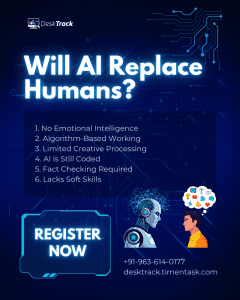
It’s still no. Here’s why.
1. No Emotional Intelligence
As we mentioned before, AI may be smart. However, it is still emotionless and can provide answers that can hurt our sentiments. On the other hand, humans will never intentionally do that. Instead, they will try their best to make emotional connections that last long.
2. Algorithm-Based Working
AI is only as limitless as its algorithm. As soon as it faces a new problem that’s beyond the understanding of the program, it will fail. However, to foreshadow its mistakes, it will probably praise the user or give an excuse such as, The problem is beyond my capabilities.
3. Limited Creative Processing
AI can create, but is not creative. Creativity is a trait unique to humans. Simply put, human intelligence can think out of the box. AI can’t.
4. AI is Still Coded
An AI system is still a collection of code. Like everything else, AI programming also has its limitations, which stop it from thinking like a human. It can still think closely to us, which may surprise some people, but experts know that it’s all just a psychological effect.
5. Fact Checking Required
AI-generated answers still require fact-checking from trusted sources, such as your history book. That’s because AI databases may either be outdated or are being continuously updated. Plus, they are huge. So, it’s easy for AI to mix up, let’s say, 2 dates and provide a wrong output.
6. Lacks Soft Skills
AI lacks soft skills, such as communication, EQ, and understanding sentiments, which are necessary to be called intelligent in the first place.
Read Also: Top 10 Project Management Software for Mac in 2026
The Future of AI & Human Intelligence
So, can AI replace human intelligence? No. Plus, AI was never meant to be made as a replacement for human intelligence. However, despite its limitations and issues, humans and AI machines are still getting along quite well. Here’s what we have observed so far.
|
In the future, AI will transform even more industries. Humans will embrace AI as an assistant and not a replacement, given how they are using it in their workflows. |
|
Answers and results from AI can hurt the sentiments of people from certain communities. On top of that, it is never the AI system to blame because it answers according to the prompt. |
|
In the future, AI might get very close to mimicking the human brain. However, it will never surpass us humans. Plus, given the current progress, this future is very far away. |
AI-Based Employee Monitoring With DeskTrack
As we mentioned before, artificial intelligence has transformed many industries and professions. It has become quite accurate, so much so that even DeskTrack’s employee monitoring software is now AI-powered. With advanced features, such as URL, file, and app usage tracking, along with screenshot monitoring and real-time reporting, it gives you a clear picture of what your employees are doing and how they are doing it. The tool provides you with useful details, such as idle time, productive time, unproductive time, and activity start/end times, helping you identify gaps and streamline workflows. Try now, and realize why 100000+ users around the globe have implemented it.
Frequently Asked Questions (FAQ)
Q. What is AI?
Ans. AI, or artificial intelligence, is an advanced computer program that claims to learn from its mistakes. Basically, AI systems mimic the human brain and depict human-like behaviors.
Q. What are the Limitations of Artificial Intelligence?
Ans. Here’s what limits the capabilities of AI systems.
- No Emotional & Ethical Decision-Making
- Algorithm Dependent
- Limited Creativity
Q. What Makes Human Intelligence Better Than AI?
Ans. AI will never have these 3 thinking power traits of humans.
- Emotional Intelligence
- Creativity & Innovation
- Intuition & Gut Instinct
Q. Will AI Beat Human Intelligence?
Ans. No. That’s because AI lacks emotional intelligence, it’s algorithm-dependent, and has limited creativity.
Q. Is There Any Potential Benefit of AI Implementation?
Ans. Yes, using AI in your workflow has many benefits, such as automating repetitive tasks or speeding up the thinking part. However, it will never surpass human intelligence.
Q. What’s the Future of AI & Human Intelligence Like?
Ans. AI, or artificial intelligence, has transformed many industries and professions, and it will continue to do so. Instead of despising it, humans are using it to complement their thinking power and make data-driven decisions. In short, they are using AI for smart work.








